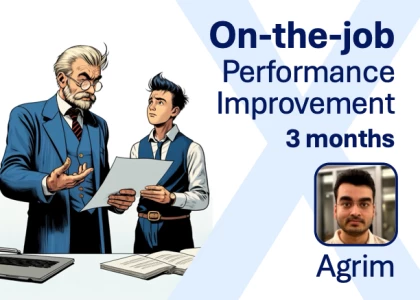I find that everywhere I look in MBB, the main issue lies with their structuring or making careless errors. But for me, it's all of the above PLUS I take forever to structure, and sometimes it's hard for me to structure from the start to finish. I am also not doing particularly well in MBB online assessments or math assessments in other job screening tests too, and I usually fail in them.
I've accepted that I might not make it into consulting at this point in time, but I still aspire to be a consultant. Is just doing math drills the way to go for this and over time I will be consistently good enough for an offer? Will I become better over time and have any of you coaches faced a similar issue with your students?
I'm seeing in most reviews on coaching that students' issue lies with structure or creativity etc, but I've never gotten a concrete answer for this particular scenario.
Looking forward to hearing your insights, coaches. thanks so much.

















